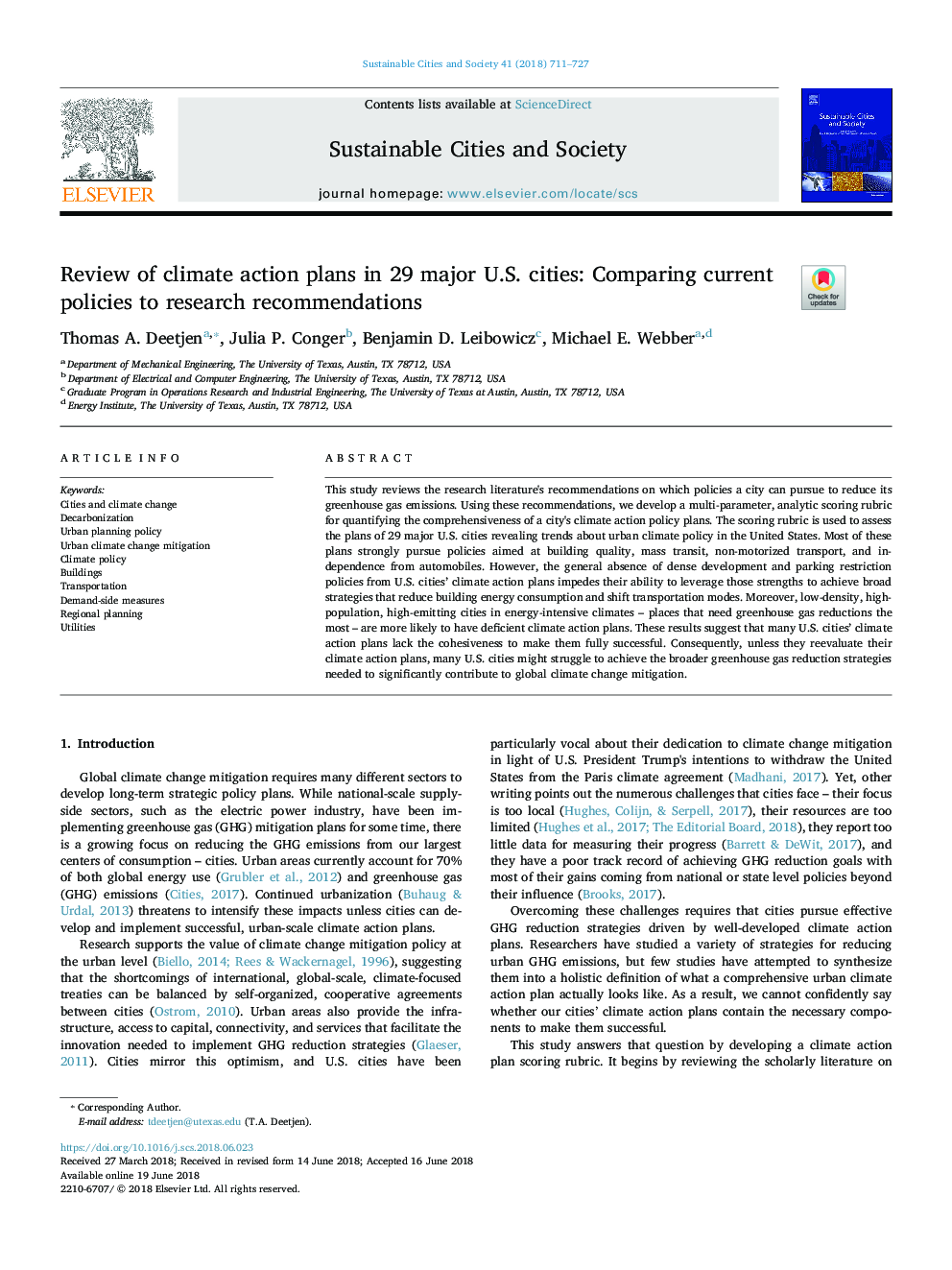| Article ID | Journal | Published Year | Pages | File Type |
|---|---|---|---|---|
| 6774825 | Sustainable Cities and Society | 2018 | 17 Pages |
Abstract
This study reviews the research literature's recommendations on which policies a city can pursue to reduce its greenhouse gas emissions. Using these recommendations, we develop a multi-parameter, analytic scoring rubric for quantifying the comprehensiveness of a city's climate action policy plans. The scoring rubric is used to assess the plans of 29 major U.S. cities revealing trends about urban climate policy in the United States. Most of these plans strongly pursue policies aimed at building quality, mass transit, non-motorized transport, and independence from automobiles. However, the general absence of dense development and parking restriction policies from U.S. cities' climate action plans impedes their ability to leverage those strengths to achieve broad strategies that reduce building energy consumption and shift transportation modes. Moreover, low-density, high-population, high-emitting cities in energy-intensive climates - places that need greenhouse gas reductions the most - are more likely to have deficient climate action plans. These results suggest that many U.S. cities' climate action plans lack the cohesiveness to make them fully successful. Consequently, unless they reevaluate their climate action plans, many U.S. cities might struggle to achieve the broader greenhouse gas reduction strategies needed to significantly contribute to global climate change mitigation.
Related Topics
Physical Sciences and Engineering
Energy
Renewable Energy, Sustainability and the Environment
Authors
Thomas A. Deetjen, Julia P. Conger, Benjamin D. Leibowicz, Michael E. Webber,
